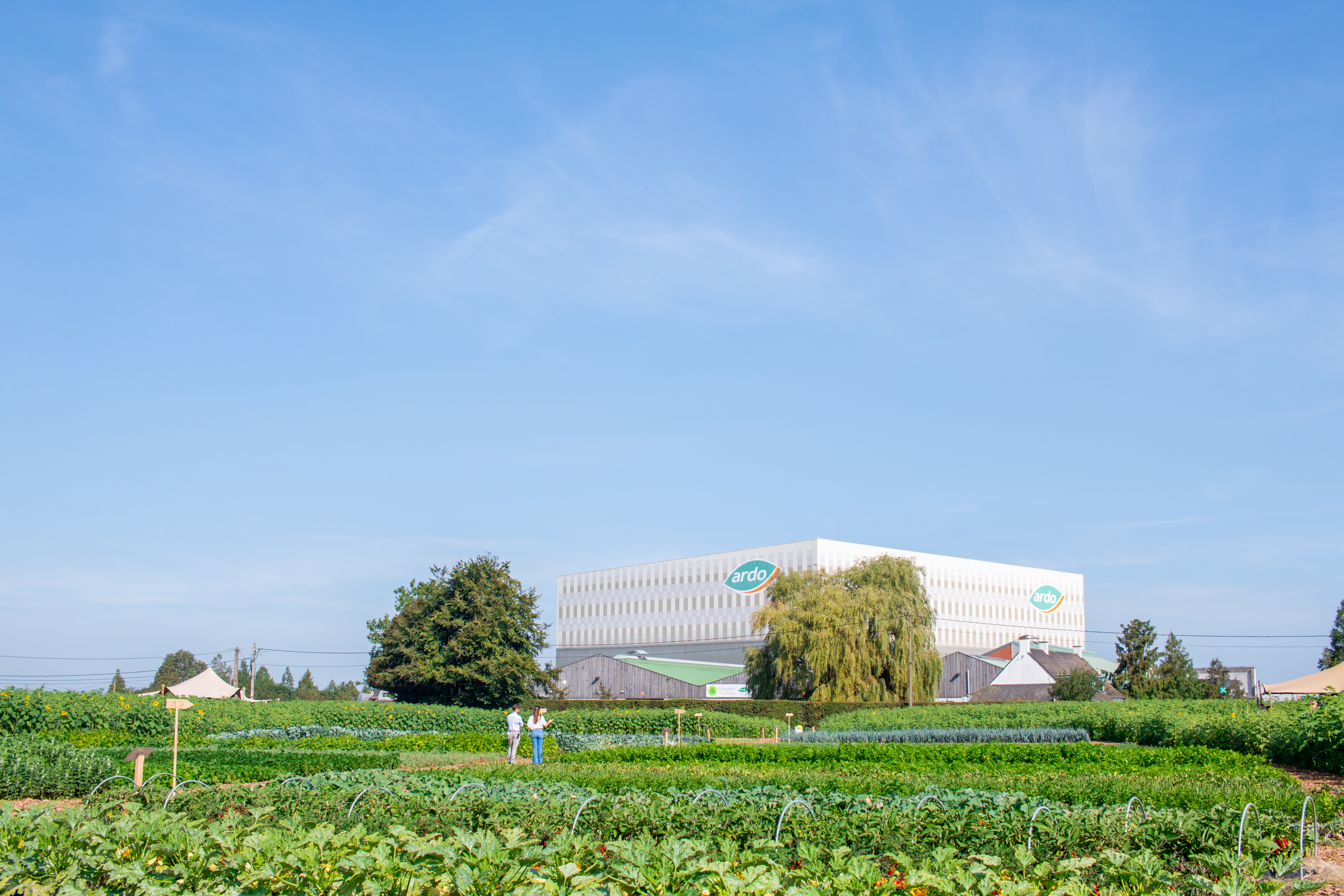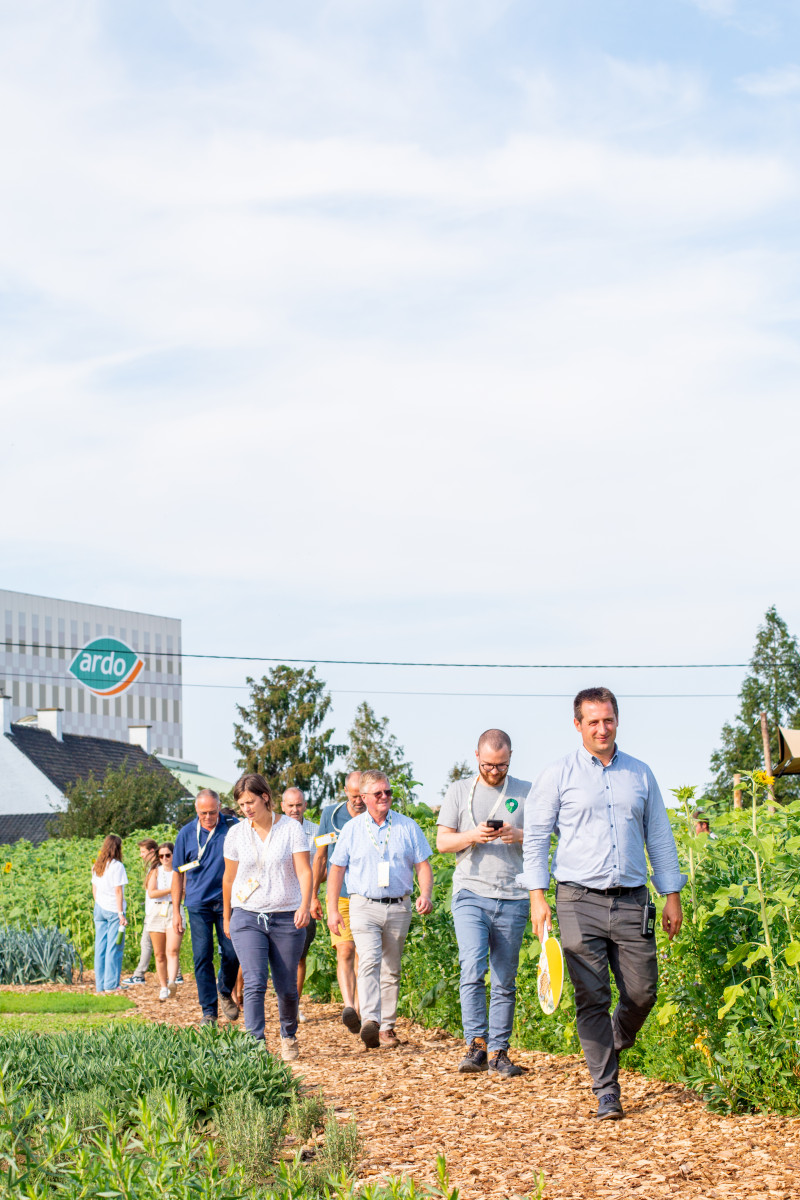The future of our vegetables lies in the soil. And today, frozen vegetable giant Ardo is taking bold steps there. With its renewed sustainability program MIMOSA+, the West-Flemish family business is investing in regenerative agriculture — an approach that fits seamlessly with Fevia’s sustainability roadmap, thanks to its focus on strong partnerships, fair trade practices and more sustainable raw materials.

Up to 20% lower yields
Over the past five years, Ardo and its growers have seen average yields of key crops fall by as much as 20% compared to the previous five-year period. That’s why Ardo is gradually shifting towards regenerative agriculture: restoring soil health to build long-term resilience and returns. This includes measures such as crop protection, biodiversity, cover crops and reduced fertilisation.
The result? More fertile soils, improved water retention and increased carbon storage. With extreme and unpredictable weather — from persistent droughts to heavy rains — combined with depleted soils, growers and food companies face serious risks without action.

Hands-on guidance
To make the transition possible, a team of agronomists supports more than 3,500 farmers in Belgium and abroad. No one-size-fits-all advice, but tailored guidance in the field — from soil analyses to customised recommendations. With MIMOSA+, Ardo demonstrates that regenerative agriculture can be both ecologically and economically viable. Since this year, the company also offers farmers a premium per hectare for sustainable cultivation practices.
A chain-wide approach
Ardo knows real change only happens when the entire chain is involved. That’s why the company actively engages with customers, buyers and processors to join the model. The aim is a broad-based system with shared risks and benefits — one that goes far beyond the traditional supplier relationship.

